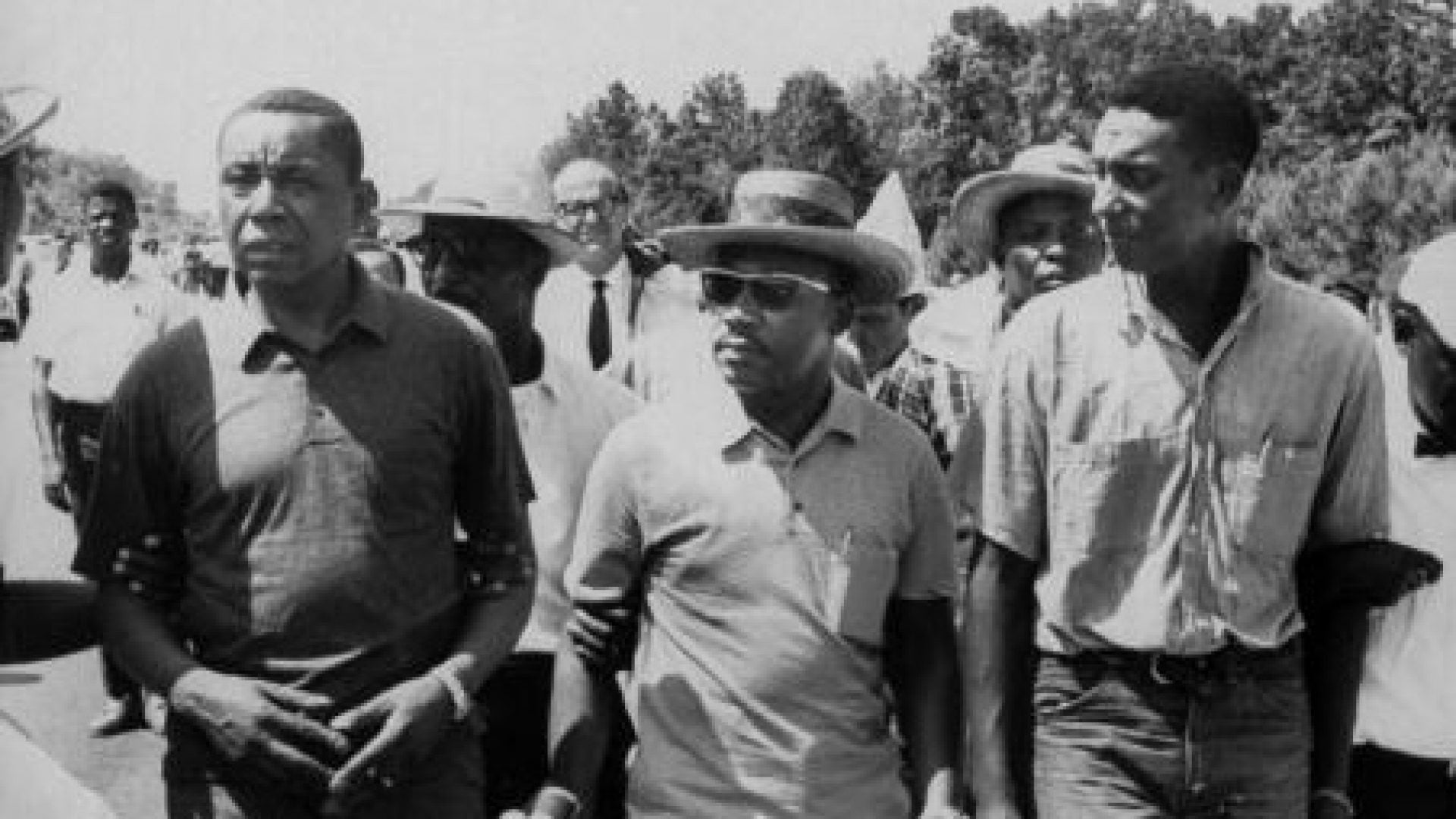
The past and present collide today, August 6, with the 56th anniversary of the Voting Rights Act of 1965.
The landmark legislation, signed into law by then-President Lyndon B. Johnson, served to enforce the 14th and 15th Amendments of the Constitution. It prohibited states from denying a person the right to vote based on race or color and banned discriminatory barriers to voting such as literacy tests and poll taxes. The VRA also provided federal oversight of voter registration in areas where less than 50 percent of the non-white population had not registered to vote.
Yet decades after Dr. Martin Luther King Jr., and fellow civil rights leaders witnessed the bill signing at the White House, voting rights have been weakened by the U.S. Supreme Court and face new threats.
A recent onslaught of more than 400 legislative bills have been introduced (and more than a dozen have become law) mostly by Republican legislators nationwide. They’ve led to protests, civil disobedience and arrests. Meanwhile, some members of Congress (specifically the Senate) are negotiating the For the People Act, a stalled bill that would increase voting and election security to ensure that everyone’s vote counts. And the House Judiciary Committee is re-tooling an updated version of the John Lewis Voting Rights Advancement Act, legislation that would enable the VRA to prevent states from legislating significant voting barriers based on race.
ESSENCE has continued to cover this ongoing issue. Here’s a rundown of what’s happening in D.C. and around the country to protect voting rights:
1. Faith leaders, HBCU students, Washington, D.C. statehood activists and community leaders held a march today (it kicked off at the Martin Luther King, Jr. Memorial) to demand voting rights justice. Participants included organizations such as Black Voters Matter; Until Freedom; Faith For Black Lives; Arc of Justice; For All; and members of the “Louisville 87” among others.
2. Michelle Obama’s When We All Vote has partnered with Stacey Abrams’ Fair Fight Action to release a new PSA. It features the former First Lady and the former Georgia lawmaker and gubernatorial candidate calling on Americans to join the voting rights’ fight. “Right now, dangerous legislation is being proposed across the country that limits the freedom to vote, cast our ballots, and have our votes counted,” said Obama and Abrams in the PSA. “Many of these proposals would disproportionately impact Black, Brown, young, and working-class voters, and voters with disabilities. They’re counting on us to stop paying attention. They’re counting on us to be quiet. But they must not know who we are. Our work is just beginning.”
Both organizations are aggressively working to register and educate voters and combat voter suppression. Currently, Fair Fight Action’s grassroots efforts include “Hot Call Summer,” which mobilizes youth to call members to Congress. So far, the group says more than 50,000 calls have been made.
3. U.S. Attorney General Merrick B. Garland is making his thoughts clear about the need for Congress to act and protect the fundamental right to vote. In a recent op-ed, he wrote:
“Our society is shaped not only by the rights it declares but also by its willingness to protect and enforce those rights. Nowhere is this clearer than in the area of voting rights.”
Garland noted that the Department of Justice is using “all its current legal authorities to combat a new wave of restrictive voting laws.”
4. Members of the U.S. Senate have steadily introduced legislation around voting rights. They include the Help Students Vote Act from Senator Cory Booker (D-NJ) to help boost voting on college campuses. And Booker recently delivered a fiery voting rights speech.
Senators Amy Klobuchar, Raphael Warnock, Alex Padilla were among those who participated in a Senate Rules Committee field hearing last month in Georgia. The hearing at the National Center for Civil and Human Rights focused on the urgent need to pass legislation to establish federal voting rights standards. Watch it here.
5. One national Black LGBTQ leader has highlighted the importance of the VRA in the larger context of human rights.
“Fifty-six years ago today, under tremendous pressure from Black civil rights activists – including LGBTQ+ heroes like Bayard Rustin – President Johnson signed the Voting Rights Act of 1965,” said David Johns, executive director of the National Black Justice Coalition.
Just this year alone, 18 states have enacted 30 laws that restrict voting access, he added.
“These laws, targeting primarily people of color and low income people – make mail voting and early voting more difficult, impose harsher voter ID requirements that disadvantage frequent movers, trans and gender non-conforming people, and make faulty voter purges more likely.”
Thus, he says it is also critical that Congress pass the Equality Act. It “would prohibit discrimination in public places that are often used as polling locations, because if you experience discrimination at a location used as a polling place, you will likely be less comfortable going there to exercise your right to vote on election day.”
Passing these critical bills, said Johns, will help fill holes in the foundation of our democracy that continue to persist even after the passage of the Voting Rights Act of 1965.







